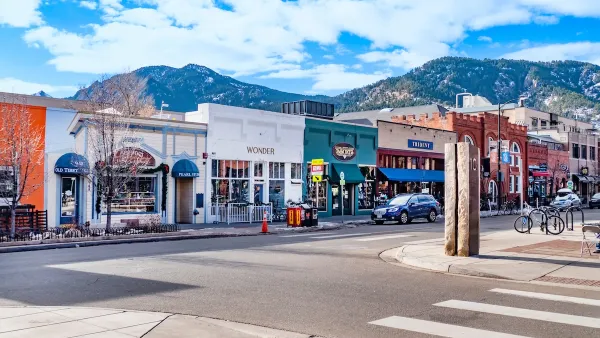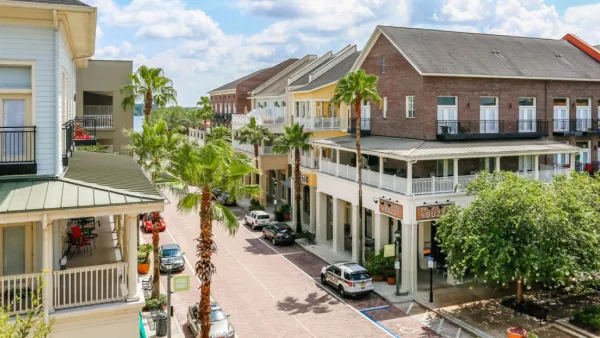One of the conclusions of a new study in the San Francisco Bay Area is that switching to electric and alternative fuel cars won't reduce the burden on households because ownership is the most significant expense. Thus, density is the only way out.
From Streetsblog: "California residents living in sprawling suburban developments could save billions of dollars every year if they lived in denser, urban zones and along transit corridors, according to a study released today by smart growth and transit advocates TransForm.
"In the Bay Area, where annual car ownership costs on average over $8,000 per person, individuals spend roughly $34 billion every year on personal transportation costs, compared to only $4.6 billion spent by public agencies on transit and roads combined. Households with poor access to public transit not only spend double the amount per year on transportation when compared to those with good access to transit, they produce more than double the amount of CO2, a greenhouse gas."
Thanks to Matthew Roth
FULL STORY: New Study Quantifies High Personal Costs of Building California Cities for Cars

Planetizen Federal Action Tracker
A weekly monitor of how Trump’s orders and actions are impacting planners and planning in America.

Restaurant Patios Were a Pandemic Win — Why Were They so Hard to Keep?
Social distancing requirements and changes in travel patterns prompted cities to pilot new uses for street and sidewalk space. Then it got complicated.

Maui's Vacation Rental Debate Turns Ugly
Verbal attacks, misinformation campaigns and fistfights plague a high-stakes debate to convert thousands of vacation rentals into long-term housing.

In California Battle of Housing vs. Environment, Housing Just Won
A new state law significantly limits the power of CEQA, an environmental review law that served as a powerful tool for blocking new development.

Boulder Eliminates Parking Minimums Citywide
Officials estimate the cost of building a single underground parking space at up to $100,000.

Orange County, Florida Adopts Largest US “Sprawl Repair” Code
The ‘Orange Code’ seeks to rectify decades of sprawl-inducing, car-oriented development.
Urban Design for Planners 1: Software Tools
This six-course series explores essential urban design concepts using open source software and equips planners with the tools they need to participate fully in the urban design process.
Planning for Universal Design
Learn the tools for implementing Universal Design in planning regulations.
Heyer Gruel & Associates PA
JM Goldson LLC
Custer County Colorado
City of Camden Redevelopment Agency
City of Astoria
Transportation Research & Education Center (TREC) at Portland State University
Camden Redevelopment Agency
City of Claremont
Municipality of Princeton (NJ)




























